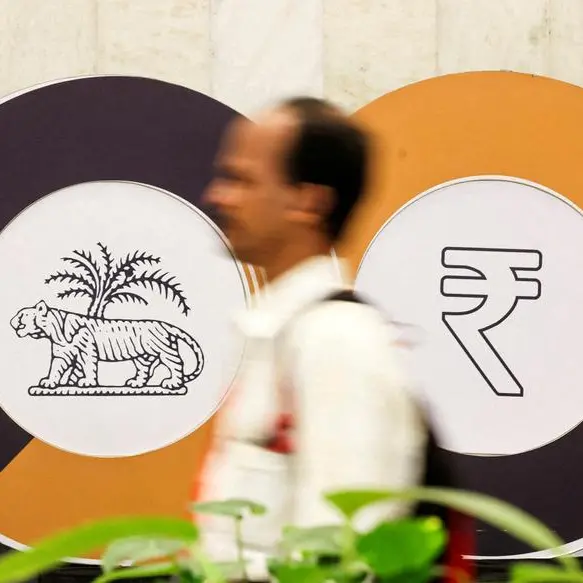PHOTO
As the world’s largest democracy is at the brink of celebrating the 76th year of Independence, India which is a growing liberal country for educational reforms, has traversed a long way in expanding the boundaries of this sector, enabling learners to attain maximum potential, and developing a fair and equitable society.
Over the years, particularly post-Independence the country has managed to increase its literacy rates to nearly 75 per cent by 2021 compared to 19 per cent in 1951, while some states even boast of 100 per cent literacy rates. But it has been a crucial and an uphill task for India to revamp and reset the education sector.
Though the accomplishments have been commendable but Indian educationists in the UAE feel the country should continue to persevere in creating a learning environment that prepares students to serve humanity and become “leaders of the future”.
Reminiscing these achievements, Dr Arindam Banerjee, Associate Professor Assistant Dean - GMBA & MGB, S P Jain School of Global Management, Dubai says: “There is absolutely no doubt in recognising the vision of our initial leader’s post-independence in their journey towards creating academic institutions of eminence. The first IIT setup in 1956 followed by the first IIM in 1961 paved way towards an India that was to create global leaders in technology and management.”
He adds: “Over the years the primary education led by central boards such as the Central Board of Secondary Education (CBSE) and Indian Certificate of Secondary Education (ICSE) took an integral part in shaping the societal backbone. Tertiary education also witnessed significant overhaul in regularly revamping its curriculum tuned towards application and experiential learning. The last few decades have seen a massive jump in private sector education, led by visionary corporates. This has given way to significant opportunities for talented and meritorious individuals to pursue their dreams and aspirations. Today, led by the vision of the present government India has seen a significant rise in the number of IITs, IIMs, AIIMS and regional engineering colleges (NIITs) that has resulted in the creation of a significant talent pool ready to serve the nation.”
But higher educationists underline that brain drain has been a significant issue faced by the Indian meritorious class of students. Often countries such as the United States, the United Kingdom, Canada, Australia, and a few European nations has been a fertile ground for Indian students.
Banerjee further explains that “the western world’s lure and quality of education has attracted Indians to study, work and also an opportunity to settle in these countries”.
“There is no doubt that a significant cost is involved in this entire exercise, with foreign universities eyeing on Indian soil might arrest the ongoing brain drain and at the same time not deprive our students of quality education. Also bearing the fact, students might save on the cost of education,” he added.
Therefore, academicians highlight that the education sector has progressively evolved to keep pace with the nature of the societal, industrial, and other developments in the nation, often feeding off each other, and blurring the distinction between cause and effect.
As a powerhouse of talent, the nation has rightfully claimed its place in the global knowledge-based economy.
Dr. Srinivasan Madapusi, Director, BITS Pilani Dubai Campus opines: “While the proliferation of educational institutions in India appears to make for a crowded marketplace, there are significant opportunities for reputed foreign universities to provide value through differentiation. The challenge is two-fold for the foreign player – to adapt operations to Indian conditions to deliver outcomes in the Indian context, or/as well as to meet aspirations of the market segment seeking a stepping stone to opportunities outside India. While the latter may be an easier model, the former may be more conducive for longevity.”
Alongside, there has been a clarion call for the implementation of India’s new education policy. The country’s union cabinet approved the new National Education Policy (NEP) on July 29, 2020, with a clear intent to introduce several changes in the Indian education system and pave the way towards a complete overhaul of India’s long awaited education sector from grass root to tertiary level.
Defining the New Education Policy to be a ‘change-maker’, experts acknowledge that emerging from the global pandemic with a stronger education system is an ambitious vision and one that demands both financial and human resources.
Ranju Anand, Vice President – Schools, GEMS Education, opines: “India has made a huge shift in mindset when it comes to education, making education more accessible, innovative and learner friendly. The latest National Education Policy (NEP) 2022 is based on four pillars — Access, Equity, Quality and Accountability — and these place emphasis on Early Years and vocational skills. The modern India remains diverse and rich in culture and values. Education is the most powerful tool to overcome poverty, especially in such a large and populous country like India. The gene pool of knowledge and skills has been visibly and exponentially multiplying in India in the years since independence.”
Simultaneously, experts feel the New Education Policy has to a great extent managed to capture and highlight essential reforms vital to the education sector.
Everyone is optimistic that the new pedagogical structure, the multidisciplinary approach, the de-compartmentalisation of academic and vocational streams and the universal access at all levels will eventually go a long way in putting the Indian education system at par with the best education systems in the world. However, in the same breath they acknowledge the fact that in the last couple of years the biggest challenge that has presented itself before the federal governments has been to ensure academic continuity for children across strata during Covid-19 with over two years spent battling the global pandemic.
Sangita Chima, Amity School Dubai Principal opines: “Curricular enhancement and adaptation to 21st century competency-based learning will ensure the integration of co-curricular activities and interactive learning models into every school curriculum. It has also influenced teaching quality and qualifications, pedagogical leadership, and the easy implementation of processes.”
Shedding light on forward, reformist steps, academicians also aver there is a need to recognize the requirement to keep up with a rapidly changing world and knowledge landscape. Banerjee adds, “as commonly said, the current generation is the Gen-Z, and the future road map of higher education needs to focus on this particular generation who no longer wants to live in the binary world of education. Children would look for a choice and preferences from a very early age which requires more choices being offered to them. The focus needs to be more on skills and the application of knowledge at every stage of education. This simply implies an education system that can understand, curate, and cater to the varied needs of this and the future generations to come.”
“Finally, education needs to align with societal bonding, environmental sustainability and a core value that can remind each individual of the nuances of their culture as well as their age-old beliefs,” he added.
Copyright © 2022 Khaleej Times. All Rights Reserved. Provided by SyndiGate Media Inc. (Syndigate.info).




















